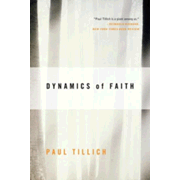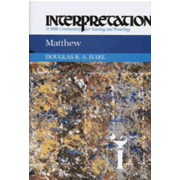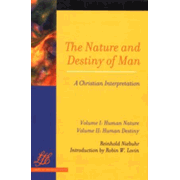From
that time Jesus began to show his disciples that he must go to Jerusalem and
suffer many things from the elders and chief priests and scribes, and be
killed, and on the third day be raised.
And Peter took him and began to rebuke him,
saying, “God forbid, Lord! This shall never happen to you.”
But he turned and said to Peter, “Get behind
me, Satan! You are a hindrance to me; for you are not on the side of God, but
of men.”
Then
Jesus told his disciples, “If any man would come after me, let him deny himself
and take up his cross and follow me. For whoever would save his
life will lose it, and whoever loses his life for my sake will find it. For
what will it profit a man, if he gains the whole world and forfeits his life?
Or what shall a man give in return for his life? For the Son of man is to come
with his angels in the glory of his Father, and then he will repay every man
for what he has done.
Truly,
I say to you, there are some standing here who will not taste death before they
see the Son of man coming in his kingdom.” (Matthew 16:21-28)
Showing
Us the Way…
In a continuation from the previous
conversation between our Lord and his disciples about the perceptions of both
other people and themselves, in this text we hear that Jesus created a counterpoint example between the found
and the lost. Differing from the earlier penned Markan account of this
conversation (c. 65-70A.D.), Matthew included something that Mark omitted.
Matthew’s gospel states clearly that Jesus said he must go to Jerusalem. We emphasize
the “must” expressed. Jesus told them by using that word that Jerusalem
was the site not only of a major confrontation wherein the powers of this world was set
over against him, but also that event contained an imperative ending that was
written in stone. Jesus said that he “must” go. This word signified that the
course unfolding was one that was previously laid out for our Lord.
Understand that as Savior, this was a role that he had accepted from the very beginning of creation. What
was most profound was that the path was pleasing to… and required by... our omniscient God. We note with interest that Matthew was the
only gospel writer who blatantly told this, the one disciple who named the place of the imperative act. Thus we may gather that the place for the crucifixion and Resurrection of Jesus had been decides and had occurred before the time of writing. This was very important to the responsive walk in faith by the writer’s own community. It seems that Matthew
wanted his congregation to distance themselves from the central core of the Judaic
government and temple cult.
Within this passionate statement we note
that Jesus stressed to the disciples that his journey to Jerusalem was not
going to include a pleasant reception. Suffering and death would be the outcome
for him.
 |
Dynamics of Faith - eBook By Paul Tillich |
Now here we need remember from last week’s lesson that Peter
had just confessed Jesus as the Christ... the Messiah, the Son of the living God. Having done
so, Peter was praised by Jesus for confessing that which had been revealed to
him by God. That praise from Jesus has resounded across the centuries that
“upon the Rock” of our Lord the Spirit would build his Church. We may gather that this
played well as told in Antioch of Syria… the community
wherein the Matthean gospel was written. You see, Peter had already exerted much
influence there.
We find as this reading progressed, however, that Peter and Jesus originally had different thoughts about the unfolding future. The
difference seemed to center about just what “Messiah” meant to Peter. For
Peter had futuristic visions of Jesus going to Jerusalem to
rightfully claim the rule of both government and temple… to restore the former earthly glory of the Jews which had been present in the days of David and Solomon.
Reading about these motivations then, could we today say that in this way Peter hoped the burden of Roman rule could be cast off from the chosen people of God? Certainly as the pebble named in the stream of divine unfolding, he was eventually to become a rock of faith,
Reading about these motivations then, could we today say that in this way Peter hoped the burden of Roman rule could be cast off from the chosen people of God? Certainly as the pebble named in the stream of divine unfolding, he was eventually to become a rock of faith,
However, Peter at first had a differing vision for the Messiah, Therefore
Peter “took” ( Greek – proslabomenous
) Jesus aside. We can envision that Peter went “nose to nose” with our Lord. He upbraided our Lord, but
in turn was firmly chastised. He received a distancing statement. Peter had provided his
argument from sinful ambition. In argument against those that say that Peter is the "Rock" that establishes his priority amongst the disciples, and therefore inherited the papacy, we see that his statement had been provided to him by
Satanic powers in the world. He therefore garnered the… “Get behind me Satan!” retort. If Peter was the "Rock, he had already crumbled. Suddenly the earlier image of the
divinely-favored Petrine position was gone from the reading. Scripture witnessed that Jesus told his
leading disciple to get in line. In other words, Jesus was asking… “Whom shall you serve?” As
the community knew by the time of this gospel’s writing, in the future Peter was to serve God
by the power of the Holy Spirit, and not fall victim to the sinful appetites of humanity.
At the time of Peter's protest, however, Jesus had turned to the whole audience of
disciples. He clarified what the apostles were intended to be... and do… and a great lesson was delivered to the later Church. We see that for Matthew’s community, the
founding voice of Peter was put in its proper place. Centered before
them stood the words of Jesus, the Messiah. These words were immovable! The
conversation centered them around carrying of the cross. Striving within the early Church was
fierce. Persons holdng various roles of the early Matthean
church were wanting to take Peter and Matthew aside. In retrospect, we realize that glaring was the message as indeed ... centuries of persecution would follow.
Addressing Factions!
Though energetic and enthusiastic at first, the prophets, teachers and leaders were exerting forces which distracted and burdened. We read of this in an admonition from the “Didache”, often rightly called the “Teaching of the Apostles of Jesus Christ”.
Believed
by many scholars to be written about 50 A.D…. some thirty years before Matthew’s
gospel, within this document we read much about the guidelines concerning persons
within the early Church. Though written primarily for teaching novices new to the faith, it
gave both leaders and laypersons alike.., certain behavioral standards…
“However, if a
teacher has himself wandered from the right path and has begun to teach a
teaching that is at odds with what is set out here, you should not listen to
him. On the other hand, if his teaching promotes holiness and knowledge of the
Lord, then you should welcome him as you would the Lord.” (Didache
11.2)
A difference loomed, therefore, between a pebble and rock for the Church. Peter, having been named as “Rock” was
called only to promote “holiness and knowledge of the Lord”. Subsequently we emphasize from writings of earlier prophets
who spoke at the time before Israel’s exile, that leaders such as Peter should not be placed
too highly. He, nor others, should stand as a hindrance to the gospel of deliverance
through Jesus. Jesus alone is the Messiah. Rendering “hindrance” then is more interpreted
as “stumbling block”. We read first from a prophet…
But
the Lord of hosts, him you
shall regard as holy; let him be your fear, and let him be your
dread. And he will become a sanctuary, and a stone of offense,
and a rock of stumbling to both houses of Israel, a trap and a snare to the
inhabitants of Jerusalem. And many shall stumble thereon; they shall fall and
be broken; they shall be snared and taken.”
(Isaiah 8:13-15)
Thus the early Church stood warned by the witness of this Hebrew
prophetic writing, coming from the ancient text they held dear. The prophet warned
about any persons or things that would usurp the foundation laid forever by
God. We read…
…
therefore thus says the Lord GOD, “Behold, I am laying in Zion for a foundation
a stone, a tested stone, a precious cornerstone, of a sure foundation: ‘He who
believes will not be in haste.’ And I will make justice the line, and
righteousness the plummet; and hail will sweep away the refuge of lies, and
waters will overwhelm the shelter.” (Isaiah 28:16)
Within this context then, Jesus the Messiah of the Living God... pointed
beyond that immediate day wherein he taught. Though he had not yet suffered the
cross, certainty was indelibly cut into the foundation of the future of the Matthean church. The
perfectly innocent Messiah had been crucified… and rose again. They, like Peter... thus stood as
admonished.
In modern times, we too carry the image of that cross as a tortuous device of rejection, persecution and death. This stresses a theology of
the cross, rather than a theology of glory. Consequently, we are called to walk in a goodly path. By being asked to carry such from its birth, the early
Church after the Resurrection knew of the given promise that any who do adhere
to the cross faithfully would surely give voice, fall… and rise again. In this way, the Church would imitate
the walk of the Teacher and Savior. This exhortation and instruction, therefore, at first hindered
by those who foolishly considered gaining mortal power and influence over the
Church, discovered that proper payment is to be made.
Carrying the Cross!
These words need be hammered upon the spiritual
rocks that lay beneath our baptismal stream. They reflect the faith of our
ancestors brightly into the Church today. We stumble forward. We today are assailed by some of the same powers that burdened the early Church. We
are rent by similar forces walking both in and out of our number. But through
this wondrous reading we know that the way of the cross of Jesus is the path
chosen for us. We are blessed if we should so carry it.
As baptized sinners then, individually we stumble and fall in
our daily lives as we try to push Jesus aside. We stubbornly rankle at scriptural
words and instructions when Satanic forces and demons try to muddy the waters
of the baptismal font. Together, as the Church which has moved through history, we see that these
same demonic powers were present always and still do not relent. But we have heard here that they shall not have
the last word. For the day comes when our Lord shall powerfully demonstrate his authority
and judgment.
If your
answer empowered by the guidance of the Holy Spirit remains as our affirmation
of faith, that "Jesus is the Son of the Living God", may those words we utter bring other sinners back to the foot of the cross. There we may together ask
forgiveness. In unity we may receive this blessing through the sacrifice of Christ our Lord and the guidance of the Holy Spirit. In this way, we and these others shall remain as blessed within the Church. We can collectively lift the cross
high before the world and its demons, for we are like our forebears in the faith! So it was when the church of Matthew approached the altar of
our Lord, and so it is with us even now.
As offering, please be invited to view this video...
Click Here To Go To Our Home Page





